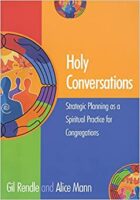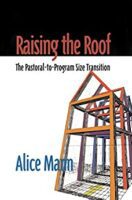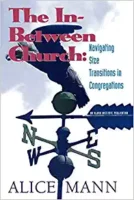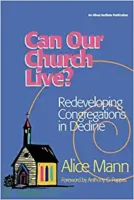[This article is part 4 of the series Crunch Time for Small Congregations.]
Several denominations have alternative methods by which persons might be trained, ordained, or licensed to provide leadership in a congregation without seminarytrained clergy, or as part of a ministry team in a cluster situation. Generally speaking, such arrangements are most effective in regions where they are widely used, and where the denomination provides a significant resource system for congregations implementing alternative ministry structures.
A wider support system is important for these reasons:
- Every congregation has a tacit “model of ministry” embedded in its culture. No matter what is said on paper, the tacit (unspoken) expectations for pastors and members have power. If a congregation already has most of the qualities identified by Kennon Callahan as hallmarks of “small, strong congregations,” the alternative ministry structure may work pretty well. Those strengths include the following:
- They focus on “one excellent mission.”
- They are “compassion-driven.”
- They offer “widening circles of belonging.”
- They maintain a “consistent spirit of self-reliance.”
- Their worship “lifts heart and hope.”
- They consistently “live and share as a team.”
- Their facilities are “just enough” for their one excellent mission
- They open “many doors of giving.”
But congregations making the shift to an alternative ministry structure often have too few of these qualities in place to succeed with the new arrangement. It often takes outside support to develop these distinctive small-congregation strengths.
- Lay and locally ordained pastors need excellent—and relevant—spiritual and practical formation for their roles. Such formation needs to be organized regionally in order to have a good-sized peer group, and to draw in quality teaching and coaching resources.
- As with any other role of leadership in ministry, lay and locally ordained pastors need ongoing support, reflection and coaching if they are to thrive in their roles. Regional support systems are crucial in order to do justice to the people who accept these important responsibilities.
In the United Methodist Church, a variety of pastoral roles are filled by clergy and laity, including
- Elders: Clergy members of the Annual Conference, ordained for Word, Sacrament and Order, and appointed by the Bishop for itinerant ministry (a minister who can be appointed to any location within the Conference by the Bishop).
- Local Pastors: Clergy members of the Annual Conference licensed for pastoral ministry. The Licensed Local Pastor does not itinerate.
- Lay Speakers: Certified for ministry in the church and community; may serve as temporary pulpit supply.
- Deacons: Clergy members of the Annual Conference, ordained for a ministry of Word and Service, and appointed to a non-itinerant ministry in the community and the congregation.
- Certified Lay Ministers: Assigned by the District Superintendent to provide lay pastoral leadership. CLMs have no clergy rights or benefits. The local church is encouraged to cover appropriate expenses of the CLM as negotiated (mileage, supplies, continuing education). This role was newly approved in 2004.
In the Episcopal Church, two different ways of training and deploying priests were laid out in national canon law in 1979. Canon 7 described a track that included seminary education and anticipated that the clergy ordained in this way would function in a paid, professional context (usually a congregation that could provide a standard clergy salary and benefits). Canon 9 described a mode of preparation that did not include a residential seminary experience and anticipated service on a volunteer basis in a setting where no seminary-trained priest was available.
As with many of the models discussed in this article, the applications of these canonical provisions in the Episcopal Church were more varied and more inventive than the canon-writers could have foreseen. In 2006, the canons were revised to provide integrated sets of provisions for priests and deacons prepared and deployed in multiple ways. In the Episcopal Church, innovative thinking about the ministries of baptized and ordained persons is sometimes gathered under the headings of “total ministry,” “shared ministry,” or “collaborative ministry.” One website that provides an introduction and important links is totalministry.org.
If you aren’t sure whether your denomination has provisions for lay or locally ordained pastors, you may wish to contact with a regional denominational representative for more information.
[Return to the series Crunch Time for Small Congregations.]
Alice Mann is a leading consultant, educator, and author in the field of congregational development, whose work has focused on strategic planning, breaking through size plateaus, creating new pathways for small and struggling churches, and helping congregations to discern and care for the “soul” of their local community. Mostly retired from consulting and teaching, Alice is an active member of a small, engaged urban congregation and also offers leadership for faith-based community organizing in her region. She occasionally accepts one-time conversations with former clients and other church leaders on issues close to her heart.
Books by Alice Mann





